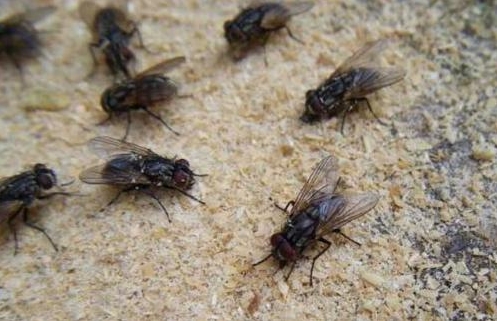Introduction
Do you ever feel like flies are on a mission to turn your home into their personal playground? Fear not! In this article, we’ll explore effective strategies for keeping these pesky insects at bay. From simple DIY methods to advanced pest control techniques, we’ve got you covered.
Flies, those tiny airborne nuisances, are not just a bother; they can also pose health risks by spreading diseases. Understanding their behavior and lifecycle is crucial for effective control.
2. The Importance of Pest Control
Why bother with pest control? Learn about the significance of keeping fly populations in check and how it contributes to a healthier environment.
3. DIY Fly Prevention Tips
Discover simple yet effective methods to deter flies from invading your space. From proper waste management to natural repellents, we’ll explore budget-friendly options.
4. Using Insecticides Effectively
When all else fails, insecticides come to the rescue. But how do you choose the right one, and what are the best practices for application? We’ll break it down for you.
5. Environmental Considerations
While battling flies, it’s essential to be mindful of our surroundings. Explore eco-friendly options and their impact on the environment.
6. Professional Pest Control Services
Sometimes, the situation calls for professional intervention. Learn about the services offered by pest control experts and when it’s time to call them in.
7. Common Fly Myths Debunked
Separating fact from fiction: we’ll debunk some common myths about flies and pest control methods.
8. Preventing Fly-Borne Diseases
Flies aren’t just annoying; they can also transmit diseases. Discover how to protect yourself and your family from fly-borne illnesses.
9. Sustainable Pest Management
Explore sustainable approaches to pest management that minimize harm to the environment while effectively controlling fly populations.
10. Conclusion
In conclusion, by understanding the behavior of flies and implementing preventive measures, you can significantly reduce their presence in your home. Remember, consistency is key to successful pest control.
Frequently Asked Questions
Q1. Are all flies harmful?
A1. While not all flies are harmful, many species can carry and transmit diseases, making them a potential health hazard.
Q2. What are some natural ways to repel flies?
A2. Natural repellents like citronella, lavender, and eucalyptus oils can help deter flies. Additionally, keeping surfaces clean and free of food debris can discourage their presence.
Q3. How often should I apply insecticides to control fly populations?
A3. The frequency of insecticide application depends on various factors such as the severity of the infestation and the type of insecticide used. It’s best to follow the manufacturer’s recommendations.
Q4. Can flies spread diseases indoors?
A4. Yes, flies can transmit diseases indoors by contaminating food and surfaces with bacteria and pathogens picked up from their breeding sites.
Q5. What are the risks of using chemical insecticides?
A5. Chemical insecticides can pose risks to human health and the environment if not used properly. It’s essential to follow safety guidelines and consider alternative methods whenever possible.
Post time: Apr-15-2024


